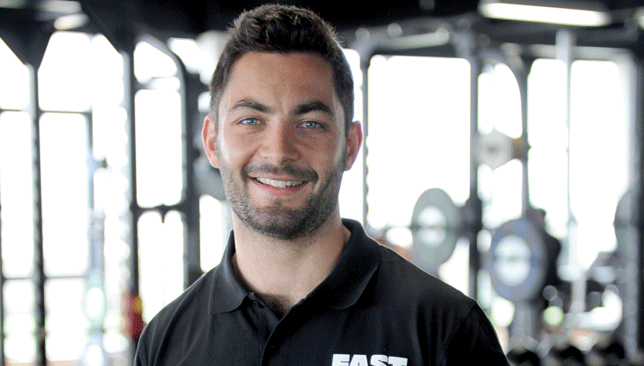
Mixed Martial Arts carries a fearsome reputation. The committed fighters kick, punch and grapple for glory in this often bloody sport. The intense discipline and fierce competition can feel intimidating to bystanders.
For Dubai-based personal trainer Alex Lee, that gritty reality at the top end should not worry anyone. Instead, the sharp movements and varied exercises required provide the perfect base for people of all ages and abilities to embark on an effective fitness program.
He utilises some of these methods in his inventive sessions at FAST Sports Performance on Sheikh Zayed Road.
For a taste of what to expect, viewers will also be able to see the 27-year-old on Fox Movies later in the year performing the role of trainer for the MMA-based reality show Al Batal.
In a break from his preparations for the programme, Lee spoke to Sport360° about the benefits MMA training provides, his ethos and a number of other topics.
Q The television show sounds like an exciting thing to be part of. Can you tell us a bit more about it?
A The show features 12 amateur athletes competing for a professional MMA contract in the Abu Dhabi Fighting Championship [ADFC]. I am the strength and conditioning coach for the competitors.
It is something I have a strong background in, and is also very similar to my past experiences in professional rugby. I have met the boys now, and given them an introduction of what is expected of them.
What benefits can MMA training provide for members of the public?
MMA is really good in terms of mobility and flexibility. In this day and age, that is huge as many people spend a lot of time at their desks. This can lead to lower back, shoulder and hip problems.
In MMA, you have a lot of disciplines which work your strength through a varied range. Through the sheer workrate involved, you will also get weight loss benefits from it.
What is your ethos when it comes to personal training?
I like to offer an individualised approach that is progressive to my clients. That’s not to say it’s easy, but it is well rationalised. I think the general public can get a bit carried away with all the information out there on the internet, at the gym, from friends etc. This can cause what I call ‘paralysis by analysis’.
They can start to stress about the wrong things. What works for one person might not work for another. For me, there is no difference when it comes to training athletes for performance or the general public.
For both, its a matter of compliance. There’s no point giving someone something to do if they’re not going to do it.

You have worked extensively with elite rugby players during your time with the England age groups, plus London Wasps and London Welsh. Is it different training members of the public?
For both, it’s a matter of buying into it. I have worked with athletes at the top level who are really not interested in doing any form of training. That’s where, as a coach, you need to be inteligent.
For me it’s about getting a balance between IQ and EQ. Emotional intelligence plays a huge role in improving compliance for all levels. It’s all very well having the scientific knowledge, but if you can’t get your athletes to buy in and do it, it’s useless.
Same goes in the approach for the general public, even more so when you consider their lifestyle compared to a professional athlete. Although, it’s hard as contact time with clients is minimal compared to spending all day, every day, with athletes.
What are the main exercises you use with clients?
A big part of my ethos is to train movements, not muscles. With the way the body and its joints are structured, you need to have a balanced approach. To get more bang for your buck you have to look at the way the body moves.
You have bench presses and pull-ups, starting off with compound movements which use as many muscles as possible. We manipulate sets, repetitions and load.
Someone might not be able to do a pull-up, so we find an alternative that works the same muscles until they build up to that. If they want to do high reps or low reps, we can vary things. Squats and a lot of core work involve the way your hip moves.
There is no need to start complicating things with movements the body cannot naturally do.
Is it fair to say your approach is a ‘back to basics’ one?
Definitely. If you are looking for a long-term approach to training it massively decreases the risk of injury. So many people come out of sessions with injuries because they are too intense – there is no middle ground. I like to look at things rationally, and build people up at a steady and safe pace.
You have extensive experience with professional athletes. Can these same methods work for all your clients?
I like to look at marginal gains. With professional athletes they have the opportunity to look at all aspects of their life as they have a sole focus. Ordinary people do not always have the time to cook their own food, or everyday life gets in the way. I completely understand that.
I do not drill home these messages to them if they will not work, as that puts them in a negative frame of mind. For me, it is all about finding something the clients can do that they will stick to. It is all about making small changes over a long period of time.
Lee works out of the FAST Sports Performance gym in Dubai. He offers flexible times to suit a variety of different clients. For information about pricing and availability, contact [email protected]. You can also follow him by visiting @AlexDLee on Twitter.